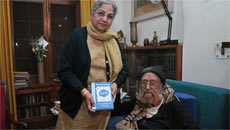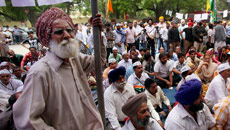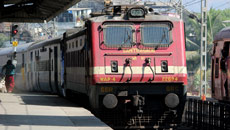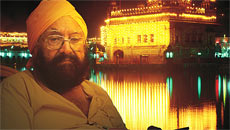To curb unbridled pollution in the national capital, the Delhi government on Friday said odd and even number vehicles will ply on alternate days in the city from January 1 - a move which drew flak far and wide.
The decision, taken at a meeting presided over by Chief Minister Arvind Kejriwal, will not apply to CNG-driven buses, taxis and auto-rickshaws but will also cover vehicles entering Delhi from other states.
The moves comes a day after the Delhi High Court likened the national capital to a gas chamber and sought immediate action from the central and Delhi governments.
The sweeping move - like the one taken in Beijing in 2013 - will apply to a large bulk of the some 90 lakh vehicles registered in Delhi, where about 1,500 new vehicles are added every day.
"A city has to try something new. The measures is for the good of the people," Delhi Chief Secretary K.K. Sharma told media.
Asked how Chief Minister Kejriwal will come to office, Sharma said: "All the modalities have been worked out and there will be a review meeting on December 8."

He said the Delhi Transport Corporation will have to press more buses into services which could be done by hiring more vehicles.
Sharma said people have to be encouraged to use public transport, leaving the provisions of penalty unclear.
Besides, the government will shut down south Delhi's coal-based Badarpur power plant, one of the coal-based plants of the NTPC. It also said that it will move to the National Green Tribunal to shut the Dadri Power Plant in neighbouring Uttar Pradesh
A web-based app will be launched enabling residents to report about polluting vehicles burning of leaves in the capital.
Delhi's vehicular population - which cause choking jams on all weekdays - includes some 27 lakh cars.
According to the Central Pollution Control Board, the air quality of Delhi is said to be "very poor" with an air quality index of 331.
When air quality index ranges between 301 and 400, the air is said to cause respiratory illness on prolonged exposure.
Experts said before taking this decision there was need to strengthen public transport first.
"Implementation of this policy is going to put extreme lot of pressure on both the government and the car drivers. When we do not have a strong public transport system, how can we expect everyone to adhere to this," Vikrant Tongad, an environmentalist working with Delhi-based Social Action for Forest and Environment, asked while speaking to IANS.
"What rubbish! Does the government even understand why most of the people use private vehicles? Mostly people use cars to cut the long duration in buses and also avoid the number of buses needed to change. The easier way to curb pollution was to increase public transport for all routes, which would certainly prevent people from using private vehicles," said Rajeev Snehi, a sales manager, who travels to Noida every day from south Delhi in his car.

In October, the National Green Tribunal announced an "Environment Tax" or "Green Tax" on commercial vehicles entering the city.
The Delhi High Court later ordered all private radio taxis to switch over to compressed natural gas (CNG) before March 1, 2016 if they desired to operate in the capital.
NGO Greenpeace warned recently that the indoor air in Delhi was five times more polluted than it should be according to Indian standards.
The WHO, however, says this is 11 times more than their prescribed level.





